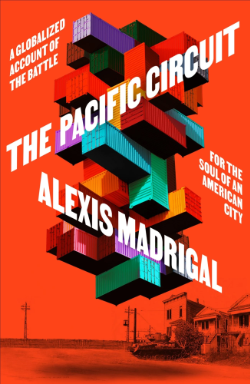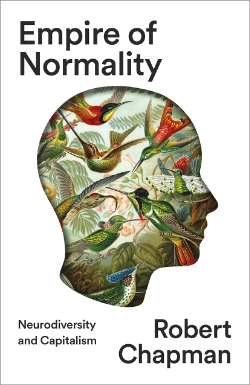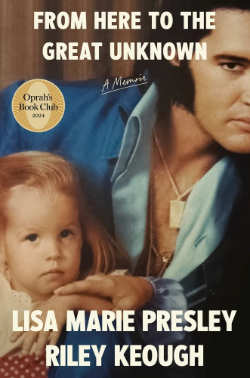Executive Disorder

On Wednesday, President Trump signed an executive order: "Advancing Artificial Intelligence Education for American Youth."
You should approach this as a Rorschach Test, of sorts: use it to evaluate what others – particularly those who are trying to sell a vision of education's AI future (with a little consulting hustle on the side) – see in this news, how they frame it, what, if any, context they (or the generative AI that is obviously used to churn out so many education newsletters, holy shit) provide.
The Washington Post article, for example, that broke the story of the order's imminent signing strangely made no comments about administration's previous order to dismantle the Department of Education. It did not remind readers that the Office of Ed-Tech (which, under Biden, had drafted guidelines to help K-12 schools navigate AI adoption) has been all but gutted, that any expertise that the department might have had in AI in K-12 education is now gone. It did not ask us to consider what a "public-private partnership" might mean when the public half of that hyphenated adjective has been all but eliminated.
The executive order calls for the National Science Foundation to "prioritize research on the use of AI in education." When you read any coverage of Wednesday's executive order – in the mainstream media or in the ubiquitous AI-in-education Substacks – do note if the author mentions how many researchers already working in the field have had their NSF grants axed by the Trump Administration. Do note who mentions that there is already decades and decades and decades of research on AI in education because – contrary to the narrative that AI emerged with the release of ChatGPT – folks have been building intelligent tutoring systems (and the like) since the 1960s.
The executive order calls for AI apprenticeships, and some observers have suggested this signals a commitment to job-skills training and workforce development. Sure! Maybe! But here too, we have to connect this document to larger policy efforts: attacks on higher education broadly speaking, but also attacks on workers' rights. It must be seen in terms of Project 2025's efforts to alter and undermine existing registered apprenticeship programs. This, alongside proposals to roll back child labor laws and prohibitions on young people working in hazardous jobs, should probably prompt us to ask what low-wage, dangerous work the administration sees K-12 students – hashtag not all students, of course – learning to actually do in (or for) the AI industry. (There's plenty of this work, to be clear, as AI is human-made not machine-made, although these jobs are currently performed by underpaid workers in the Global South. So maybe this is how we bring manufacturing jobs home or something.)
The executive order calls for federal funding for teacher training. Again, note who mentions that, back in February, the Department of Education gloated about slashing some $600 million in funding for this very thing – or at least, for "divisive teacher training"; that is, for teacher recruitment and retention programs with diversity or equity goals or those that address issues of inclusion and accessibility.
Pay attention to who makes this key connection – and yeah, this is me CTRL+F-ing to see if the word "bias" appears in any write-up of this executive order. With the administration's ban on anything related to "DEI," with schools forbidden to talk about race and racism (or even about history), with the January EO that called for the removal of "ideological" "barriers" in AI development, what do we think this call for "AI Literacy" will actually entail?
Who do we think this order will benefit? And who will most certainly be harmed?
Each week, I gather lots of links to stories – news, essays, what have you – that shed light on what's happening in education/technology. Then, in this Friday newsletter, I try to sum things up, identify key trends, point to provocations others have written.
But I'm going to mostly skip that this week, other than some very large and alarmed gesturing to the news about RFK Jr.'s autism registry and about the Trump Administration's texts to Barnard College faculty, asking if they're Jewish.
Instead, I'm going to link to 12 of the best books that I've read so far this year and encourage you all to get off the Internet and read a book. Read it in paperback or hardcover. Read a digital version. Listen to it read out loud to you by the author or by a voice actor. I do not care. But read a book. This is the literacy initiative we need right now: actually fucking reading. And reading something longer than a text message or status update, to be clear.
Few of these books below are explicitly about AI or education. And yet they all have helped me think about AI and education more critically and expansively, particularly as we witness the technological forces that are trying to automate decision-making and discrimination (and that have done so for generations) and the political forces that would very much like to strip from us the rights we've gained in the last half century.
The Promise of Access: Technology, Inequality, and the Political Economy of Hope by Daniel Greene. Tressie McMillan Cottom recommended this, which I believe tells you everything right there. "One of the most important books written on social institutions and the lived experience of techno-solutionism in the United States," her blurb on the front cover reads. This book outlines one of the crucial sleights-of-hand that technology's promoters make, with all the neoliberal ideological underpinnings therein: we've dismantled the welfare state; now, all the promises of education, community, employment, opportunity, survival run through the Internet instead. (The only other option is prison. And do note one of the other EOs that Trump signed on Wednesday that calls for "reinstating common sense school discipline policies" – that is, for reaffirming the racist school-to-prison pipeline.)
Access is Capture: How Edtech Reproduces Racial Inequality by Roderic N. Crooks. As the title suggests, Crooks builds on Greene's work on the "access doctrine," describing in ethnographic detail how ed-tech makes things worse for Black and brown students and minoritized, marginalized communities. It's the latter that I found particularly interesting as Crooks describes his work with community activists struggling to do the data work that local governments now all demand in order to make any civic argument – how this data work saps community resources (people's time and labor) and how it can reinforce existing hierarchies, often benefiting those already in or near power. He draws on the work of the Black Panthers, specifically the writings of Huey Newton and Elaine Brown, to explore not just their call for community control of technology – a plank in the BPP platform – but their analysis of technology as inextricable from global capital and state violence.

The Pacific Circuit: A Globalized Account of the Battle for the Soul of an American City by Alexis Madrigal. I am "ride or die" for Oakland, California, even though I only lived there briefly and I've lived away again for almost as long. So grain of salt and all that, when I say that this new book by Madrigal is one of the best books of the year and should win all the awards; and now too with Trump's tariffs, this is one of the most important in helping us understand the intricacies of the global supply chain – its past as well as its present incarnation – and the world that's crumbling around us. The book joins another of my favorites – Jenny Odell's How to Do Nothing – in using the city of Oakland as a lens to talk about the global economy, the environment, racism, politics, history, and the Internet. Madrigal zooms way out and back in again, through the story of local activist Mrs. Margaret Gordon. I listened to the audiobook, which Madrigal narrates. And keep listening/reading to the end, to the closing pages in which he describes his decade-long research for the book – what he read, who he talked to. It's just another reminder that generative AI will never ever replace human inquiry and storytelling.
Eichmann in Jerusalem: A Report on the Banality of Evil by Hannah Arendt. "The trouble with Eichmann was precisely that so many were like him, and that the many were neither perverted nor sadistic, that they were, and still are, terribly and terrifyingly normal. From the viewpoint of our legal institutions and of our moral standards of judgment, this normality was much more terrifying than all the atrocities put together,” Arendt wrote over 60 years ago in a book that is depressingly timely. The banality of evil occurs in thoughtlessness, she argues. We'd be well-served to think about how we are automating thoughtlessness with AI.
On Freedom by Timothy Snyder. Like many people, I've worriedly worked my way through almost all of historian Timothy Snyder's books – this one, The Road to Unfreedom, On Tyranny – hoping to find clues, solace, tactics, hope. On Freedom is "part memoir, part meditation and part manifesto," as the frowning review in The New York Times calls it, chastising Snyder for his optimism. That strikes me as an odd reading of the book (and of Snyder's stance more broadly), depressing in its own Grey Lady way. Here, Snyder tries to articulate the positive characteristics of freedom in the face of those who identify freedom in the negative, those who claim to stand for liberty while denying others their rights.
The Unaccountability Machine: Why Big Systems Make Terrible Decisions--And How the World Lost Its Mind by Dan Davies. I don't think I've read all that many books on management theory – actually, I'm not sure I've read any others, unless Machiavelli's The Prince counts. So maybe instead of my opinion (I mean, I have put it here on my list of favorites of the year), I'll point you to reviews elsewhere: Josh Brake ("How a certain scheme to improve the human condition will fail"), Henry Farrell ("Cybernetics is the science of the polycrisis"), and Rob Nelson ("Old ways of thinking about new problems"), for starters. If there's an "everyone is reading this book" book, this might be it.

Empire of Normality: Neurodiversity and Capitalism by Robert Chapman. I'll read a historical materialist approach to almost anything, no lies, but I haven't finished this one yet, so I guess it's cheating to put it on the list. Chapman offers a Marxist history of how capitalism has shaped and circumscribed who counts as "productive," who is deemed worthy of participating mentally in society. Again, pretty relevant not simply because of the connections between intelligence testing, eugenics, and AI, but because the Secretary of Health and Human Services is, quite literally, now making lists of those he deems mentally unfit.
Who's Afraid of Gender? by Judith Butler. I feel like I must disclose at the outset that this is the first book by Judith Butler I have read since I was an undergraduate in college, some 35 years ago. That's how long it's been since Gender Trouble was first published. Damn. But I've actually read Judith Butler – now more than once! – which is so much more than you can say for almost everyone who's up in arms about the dangers and damage from Butler's "gender ideology." I listened to the audiobook – Butler narrates – finishing it this past week: a week in which the UK courts declared that trans women are not women and in which the Pope, who once likened gender to nuclear warfare, died, likely to be replaced by someone who will continue to make alliances between religion and the fascist right.

“This refusal of gender critics to read the texts they oppose — or to learn how best to read them — makes sense only if reading is taken to be an uncritical exercise. And if an uncritical reading or reception of the texts they deem authoritative is what they defend, they more purely illustrate what is properly called an ideological or dogmatic position, that is, one that refuses questions, challenges, and a spirit of open inquiry. This attitude is part of the broader anti-intellectual trend marked by its hostility to all forms of critical thought.”
You gotta read, folks. You gotta.
Cyberlibertarianism: The Right-Wing Politics of Digital Technology by David Golumbia. Golumbia's first book, The Cultural Logic of Computation, was life-changing for me – one of the very first books I read that clearly articulated my deep unease about digital technology. This one reads like a posthumous "I fucking told you so," and, damn, he sure did. Rest in power, my friend.
The AI Mirror: How to Reclaim Our Humanity in an Age of Machine Thinking by Shannon Vallor. I am a sucker for a good metaphor, and "the mirror" is a damn fine one, utilized quite powerfully throughout this book: Lewis Carroll's Through the Looking Glass, Ovid's story of Narcissus and Echo, for example. Vallor is a virtues ethicist, and her academic discipline brings something quite different from many of the other books – histories, sociologies – I've read about AI. I don't know that I believe "virtue ethics" is the way forward necessarily. I've been scarred by too many philosophy classes. But it's not not, as the book below sure reminds us.
Careless People: A Cautionary Tale of Power, Greed, and Lost Idealism by Sarah Wynn-Williams. I love a memoir, and I picked up this book with the expectation it would simply fulfill the genre's conventions: "here's what I did at Facebook. And it was bad." I'd heard snippets from other reviewers, I guess – things about Sheryl Sandberg spending a lot of money on lingerie and asking her assistants to "come to bed" with her while on a private jet. But to focus on those salacious events – no doubt exposés of power and greed – overlooks the policy focus of Wynn-Williams' work at Facebook and her insights in this memoir about its leaders. The final chapters, which detail Mark Zuckerberg's willingness to work with the Chinese government and to enable an AI-enhanced techno-authoritarian both there and here in the US, are pretty goddamned important. This book works as memoir and as critique in some interesting ways (and fails at times as well).

From Here to the Great Unknown: A Memoir by Lisa Marie Presley and Riley Keough. Like I said, I love a memoir – favorite genre, for sure. This one is jointly authored, as Presley asked her daughter to help her with it shortly before her death in 2022. I listened to the audiobook, a shared narration by Julia Roberts (voicing Presley's part of the book) and by Riley Keough. It's beautiful and heartbreaking. I mean, how do you ever find yourself and believe in your own greatness when your father is the King?!
Thanks for being a subscriber to Second Breakfast. Please consider becoming a paid subscriber. I know times are tough and weird and awful, but I can't do this work without your financial support. Speaking of which, the links to the books in this newsletter will direct you to Bookshop.org, where I get a small kickback if you order books through the independent booksellers that website supports.





